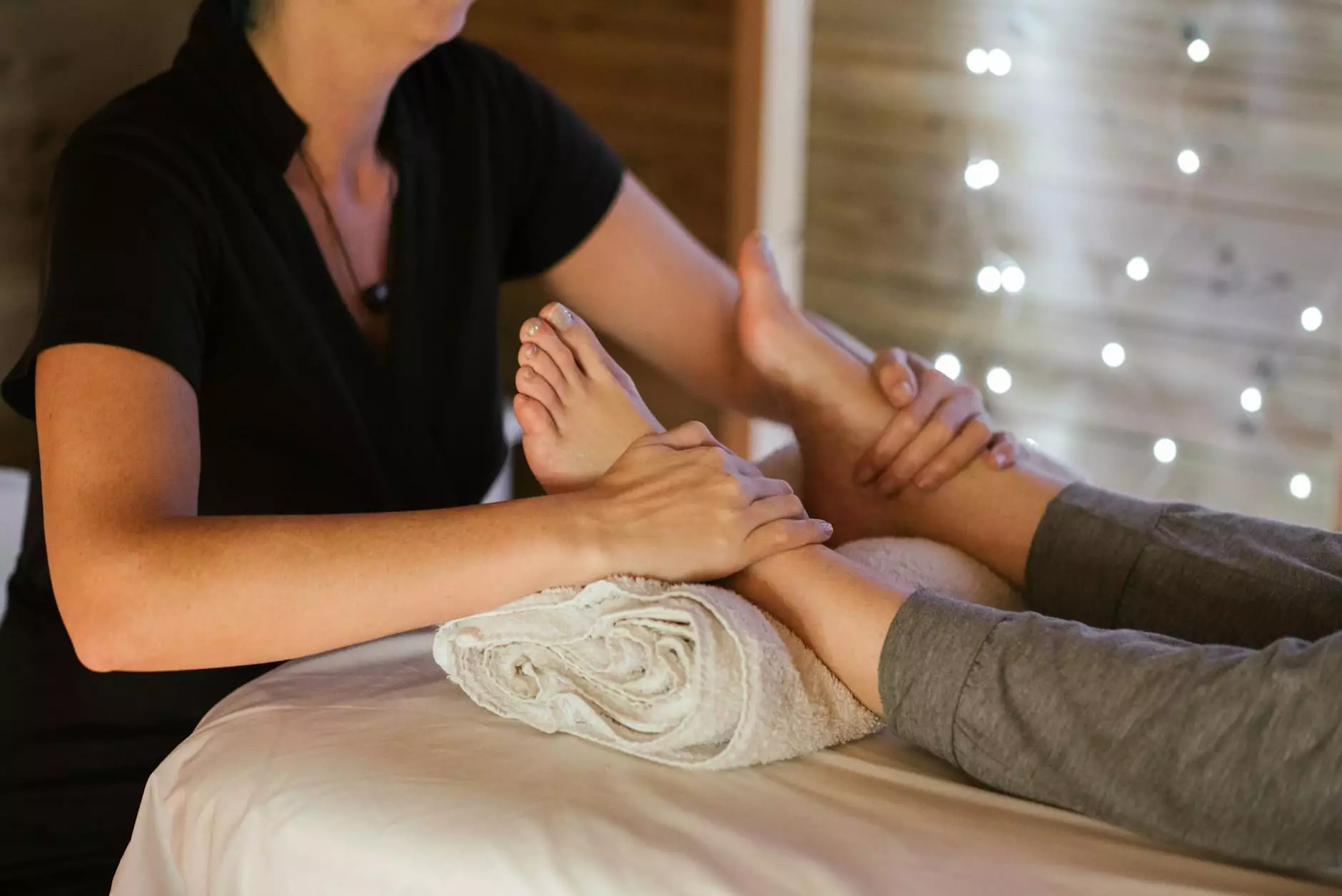Effective Calluses Treatment: Comprehensive Guide for Healthier Feet

Calluses can often become an annoying and uncomfortable problem for many, affecting not just the aesthetic appeal of our feet but also our daily comfort. Understanding calluses treatment is crucial for maintaining foot health, especially for individuals who spend long hours on their feet or engage in physical activities. In this detailed guide, we will explore everything you need to know about calluses, their causes, prevention, and the best treatment options available.
What Exactly Are Calluses?
A callus is a thickened area of skin that forms as a protective response to friction, pressure, or irritation. They are most commonly found on the feet, particularly on the soles and toes, but can also appear on hands or other body parts that experience similar stresses. While calluses serve a protective function, they can become bothersome when they grow excessively or develop cracks.
Causes of Calluses
Understanding the causes of calluses is essential to prevent their formation. Here are the primary factors:
- Friction: Regularly wearing ill-fitting footwear can cause friction against the skin, leading to callus formation.
- Pressure: Engaging in activities that put prolonged pressure on certain areas of the feet, such as running or walking long distances.
- Foot Deformities: Conditions like bunions, hammertoes, or flat feet can lead to abnormal pressure distribution, resulting in callus development.
- Dry Skin: Lack of moisture can lead to dry, cracked skin, further exacerbating callus formation.
- Occupational Hazards: Certain professions that require standing for long periods, such as healthcare workers, factory employees, and service industry workers, may lead to calluses.
Identifying Calluses: Symptoms to Look For
Recognizing the symptoms of calluses is essential for early treatment. Common signs include:
- Thickened Skin: The most apparent symptom; it often appears yellowish in color.
- Hard or Bumpy Surface: Calluses feel firm and may have rough surfaces.
- Pain or Discomfort: Calluses can become painful or tender, especially when they crack or get inflamed.
- Skin Changes: Surrounding skin may exhibit redness or swelling.
Preventive Measures for Calluses
Preventing calluses is largely about minimizing friction and pressure on the feet. Here are effective strategies:
- Choose the Right Footwear: Opt for well-fitting shoes that provide adequate room for your toes. Avoid overly tight or loose footwear.
- Use Protective Padding: Insole pads or gel cushions can help distribute pressure evenly across the foot.
- Moisturize Regularly: Keeping your feet hydrated can prevent dryness and reduce the risk of calluses. Use a thick cream, especially before bedtime.
- Practice Good Foot Hygiene: Regular washing and maintenance can help keep the skin healthy and resilient.
- Take Breaks: If you spend long periods standing or walking, take regular breaks to relieve pressure on your feet.
Effective Calluses Treatment Options
When calluses do develop, various treatment options are available. Below, we explore both at-home remedies and professional treatments.
At-Home Remedies for Calluses
Many people find relief for calluses using simple home treatments. Here are some effective strategies:
- Soaking: Soak your feet in warm, soapy water for about 10 to 15 minutes. This will soften the calluses and make them easier to remove.
- Pumice Stone: After soaking, gently rub a pumice stone over the callus to exfoliate the thickened skin. Do this regularly for best results.
- Foot Creams: Apply creams containing urea or salicylic acid, which help to break down callused skin. Be sure to follow instructions on any product carefully.
- Foot Masks: Consider using foot masks designed to exfoliate and hydrate. These can be particularly effective when left on overnight.
- Use of Adhesive Pads: Several products specifically for calluses can be found over-the-counter; look for medicated pads that help soften and reduce calluses.
Professional Treatments for Calluses
If at-home treatments aren't effective, you may need to consult a healthcare professional. Here are options they may offer:
- Debridement: This involves a podiatrist carefully removing the thickened skin using specialized instruments. This is often painless and can provide immediate relief.
- Orthotics: Custom orthotics may be prescribed to correct foot alignment and reduce pressure, which can help prevent further callus formation.
- Medication: In some cases, a doctor may recommend topical treatments or medications that aren't available over-the-counter.
- Surgery: For severe deformities leading to chronic calluses, surgical options might be considered to correct the underlying issues.
Understanding When to Seek Help
While calluses are usually benign, there are instances when you should seek professional help:
- If the callus becomes painful or shows signs of infection, such as increased redness, swelling, or pus.
- If there is bleeding or the area becomes excessively heated.
- If you have diabetes or other medical conditions that affect foot health, regular professional check-ups are essential.
- If at-home treatments do not produce any results or if the callus continues to grow.
Conclusion: Achieving Healthier Feet Through Proper Care
Calluses might seem like a minor annoyance, but they can impact your overall foot health and comfort significantly. By understanding the treatment for calluses, identifying their causes, and practicing preventive measures, you can maintain the health of your feet. Remember, investing in proper footwear and foot care strategies are essential steps toward preventing calluses and ensuring that your feet remain comfortable and healthy.
If you're struggling with persistent or painful calluses, it's advisable to consult a podiatrist. Experts can provide tailored advice and treatments that suit your specific needs, helping you walk comfortably without the burden of calluses.
For more detailed foot care solutions and professional podiatrist services, consider visiting The Foot Practice. Your feet deserve the very best care.









